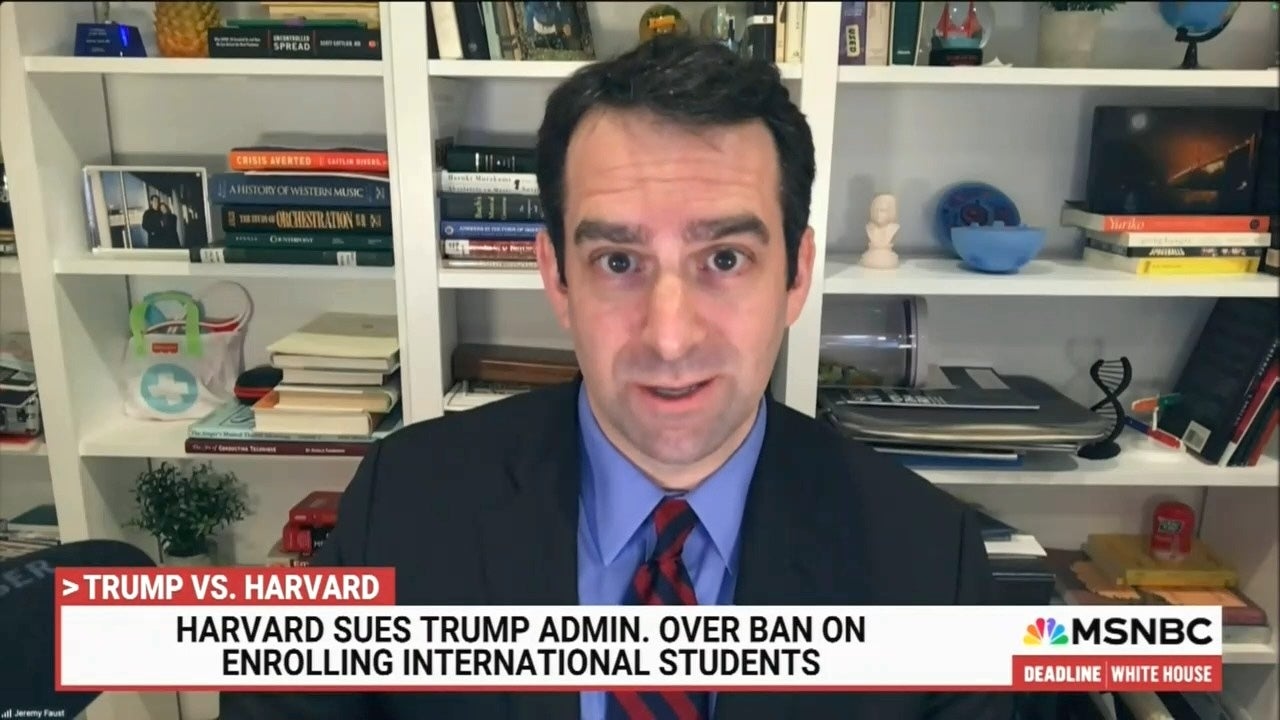Harvard Professor Reveals Stunning Advice He Gave Student Amid Trump Battle

A Harvard University professor surprised MSNBC’s Nicolle Wallace on Friday after he revealed what he told a student who was considering graduate studies at the Ivy League institution amid attacks by the Trump administration.
″‘Well, you should look overseas,’ I never thought I’d say that,” said Dr. Jeremy Faust, an assistant professor at Harvard Medical School.
Advertisement
“Wow,” Wallace replied.
“But I did say those words that they should consider that,” Faust continued.
“Now, I’m not saying that everyone should, but I never even thought I would consider telling somebody to do that but that’s how many question marks we have.”
Faust’s remarks arrive on the same day that a federal judge blocked the Trump administration’s plan to bar enrollment of foreign students.
The administration’s move marked an escalation in its ongoing battle with Harvard, which has also seen President Donald Trump propose stripping the university of its tax-exempt status.
Advertisement
Treasury Secretary Scott Bessent told Bloomberg Television on Friday that the administration is “moving forward” with such efforts.
Last month, Harvard refused to bend the knee to Trump’s funding demands — made under the pretexts of combatting antisemitism, transgender rights along with diversity, equity and inclusion efforts.
This led to the administration freezing billions in federal funding at Harvard, sparking fears over how the move would affect ongoing research and sparking a lawsuit from the university.
Advertisement
Earlier in the MSNBC program, Faust stressed the importance of the international science community along with the value of scientific research by referring to biochemist Katalin Karikó, who left her native Hungary and came to the U.S. where she collaborated with immunologist Drew Weissman.
Their research led to the development of effective mRNA vaccines against COVID-19, which won them a Nobel Prize in 2023.
“We want those people to come here, to Harvard, and to every other university,” Faust declared.
He also pointed to recent news of a baby in Pennsylvania with a rare, life-threatening genetic disorder who was treated with genome-editing therapy.
Advertisement
He linked the story to developments stemming from the work of American biochemist Jennifer Doudna and French scientist Emmanuelle Charpentier, who met at a conference in Puerto Rico before winning a Nobel Prize in 2020 for their work on genome editing.
“And now we’re hearing that scientists don’t want to come to the United States, even for conferences,” Faust said.
“And so I think the chilling effect here is really, really massive.”
Advertisement
H/T: Mediaite

Comments are closed.